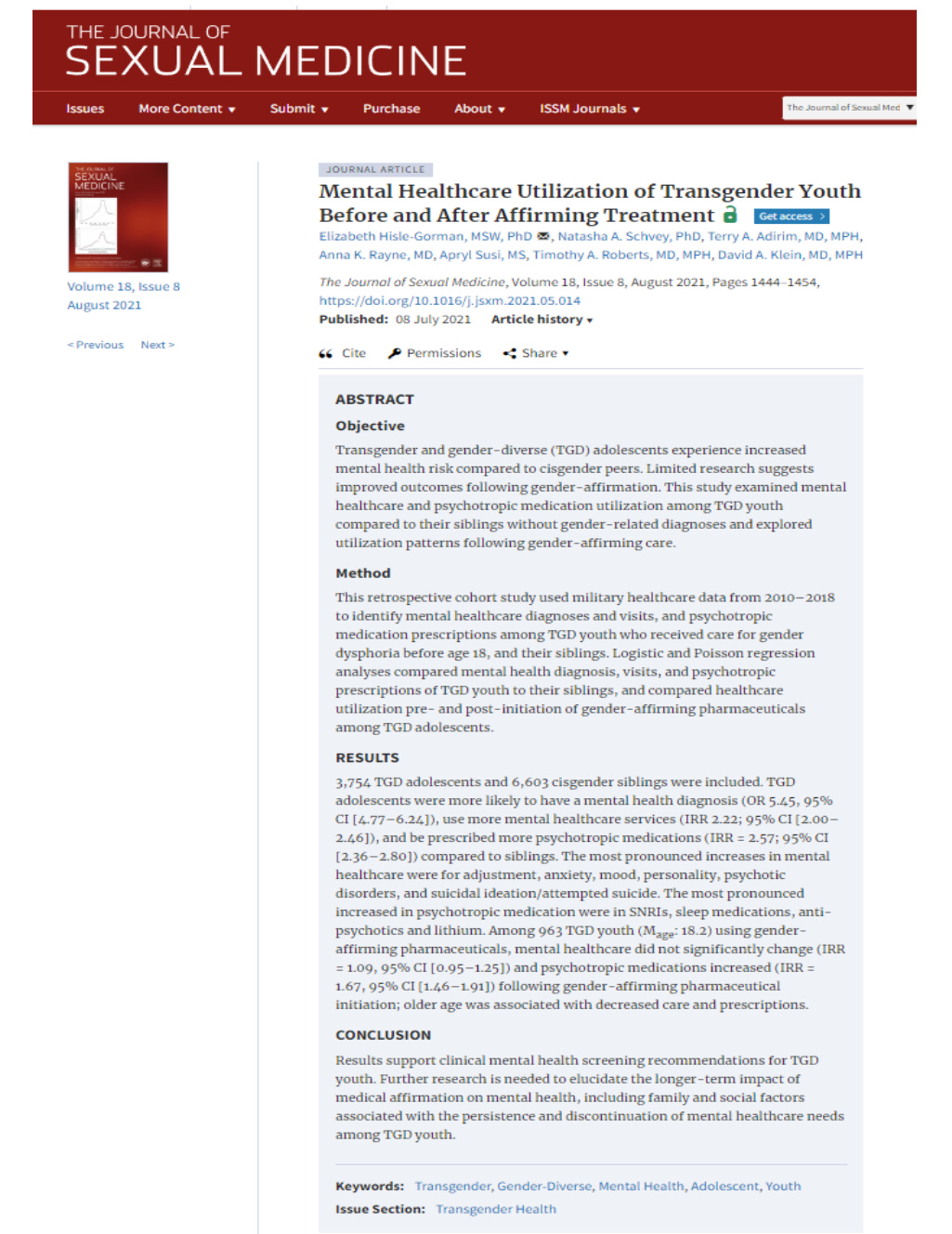The explosion of transgender medicine (TGD) as a new clinical segment of internal medicine is aimed at treating gender dysphoria. Does sex change really make gender dysphoria go away? One proxy for the psychological impact for better or worse is mental health care costs. A recent study reported shocking results in the wrong direction.
Hisle-Gorman et al from Department of Pediatrics, Uniformed Services University, Bethesda, MD published a retrospective cohort (N=3754) study using military healthcare data from 2010-2018 identifying mental healthcare diagnoses and visits, and psychotropic medication prescriptions among TGD youth who received care for gender dysphoria before age 18, and their siblings.

Sadly, TGD adolescents were more likely to have a mental health diagnosis (OR 5.45, 95% CI [4.77-6.24]), use more mental healthcare services (IRR 2.22; 95% CI [2.00-2.46]), and used psychotropic medications (IRR = 2.57; 95% CI [2.36-2.80]) compared to normal siblings. Diagnoses included adjustment, anxiety, mood, personality, psychotic disorders, and suicidal ideation/attempted suicide. Among 963 TGD youth (age ~18 yrs) using gender-affirming pharmaceuticals, mental healthcare did not significantly change (IRR = 1.09, 95% CI [0.95-1.25]) and psychotropic medications increased (IRR = 1.67, 95% CI [1.46-1.91]) following gender-affirming pharmaceutical initiation.
These data suggest transgender medicine makes the overall burden of psychiatric disease worse and clearly increases the costs of psychiatric care. Parents should understand that transgender medicine is not effective in handling the psychiatric drivers of gender dysphoria in their teenagers.
If you find “Courageous Discourse” enjoyable and useful to your endeavors, please subscribe as a paying or founder member to support our efforts in helping you engage in these discussions with family, friends, and your extended circles.

